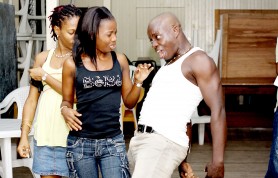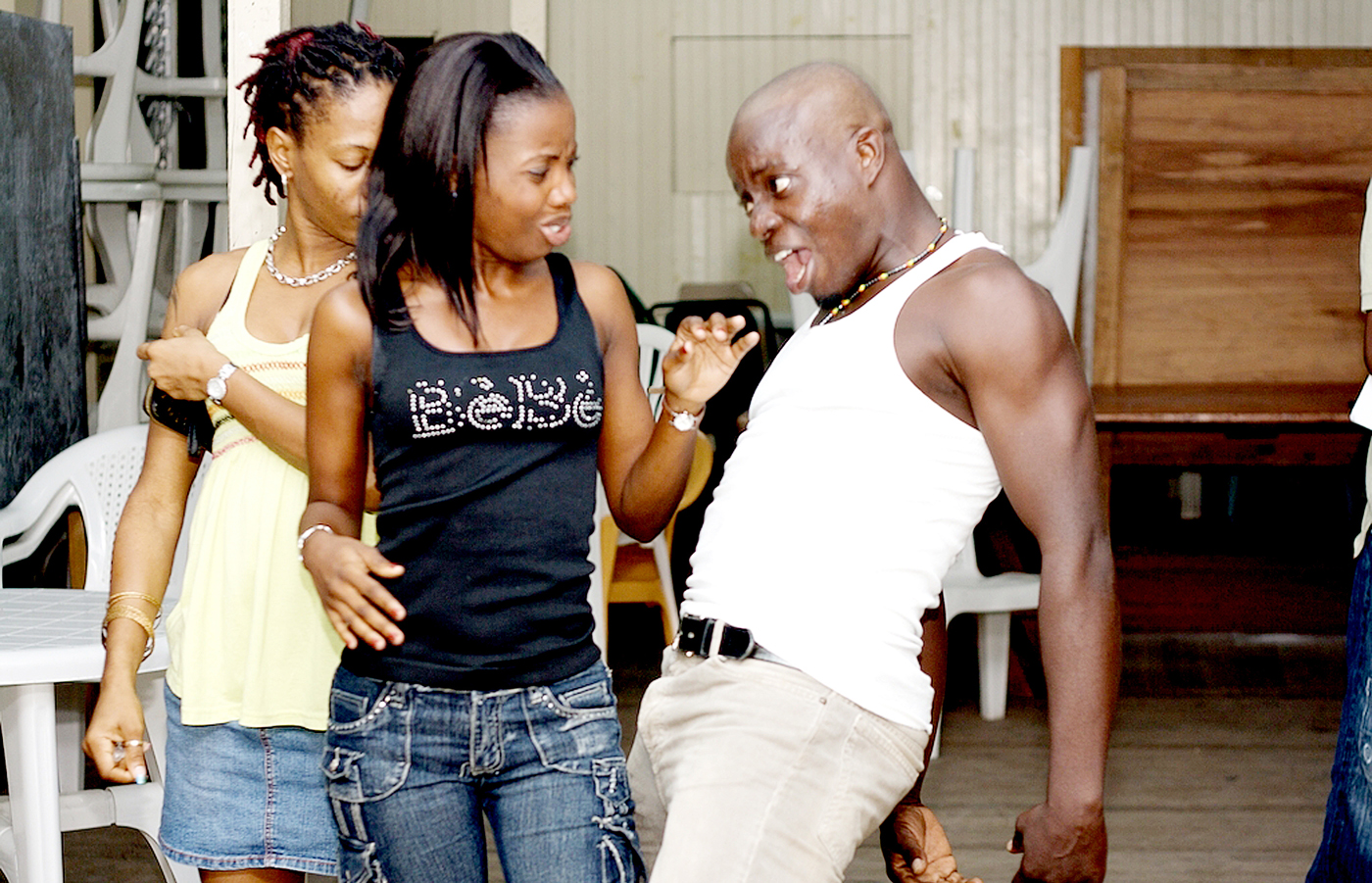– sets the stage for national conversation on minibus culture
Ronald Hollingsworth’s Watch de Ride was produced over a decade ago yet its rebirth on stage at the National Cultural Centre last weekend betrayed no signs of a play long gone and out of touch.
To comment on its relevance in 1995 is difficult because that year found me just of primary school, but it’s likely it was the same as today. The inappropriate sexual affairs of minibus bus drivers/conductors and schoolgirls are recurring social issues, I suspect, even if the numbers were few back then.
The culture of ‘bus riding’ seems ingrained in some girls even if the older folks might not want to admit to some excesses, but there are obvious differences today. What has happened over the years is that a culture of normalcy developed and it suddenly became okay for older minibus drivers/conductors to publicly play with school-aged girls.
That Watch de Ride has maintained is relevance indicates very little has changed within a decade and it’s a troubling realization that appeared to have struck something within the people gathered at the NCC on Saturday night last. There were the frequent comments on how much the play mirrored attitudes and behaviour and an uncomfortable feel in the auditorium as the scenes played out on stage; one disquieting skit to the next.
Hollingsworth focused on family, peer pressure and the minibus culture; three themes which he intensely explored. The play was an emotional and a bit harsh; barely offering you a chance to empathize with its central characters because you also feel displeasure.
Hollingsworth also brought to life a cruel and unforgiving crew of minibus drivers who hop around the bus park waiting to ‘score’ with the young women; some vulnerable and others too experienced to still be in uniforms. He showed that group of young girls who love to ‘bus ride’ during school hours and who hang out with the drivers and conductors outside of school hours; some spending their own money to have a good time and to fete their older admirers.

The parents in the play were also disconnected; detached from what was happening with their young daughters save for one woman who turned up everyday with a stick in hand looking for her daughter. Therefore, the girls were allowed to hatch a story and get by on it.
There was also the older sister who was concerned yet careful not to press much and the younger brother who cared enough to follow his sister everywhere; his version of events was usually rejected though.
Mariatha Causway, popularly known as Jennifer Thomas, directed this recent version of Watch de Ride and she was able to beautifully capture the story on stage; she also had a fantastic cast to work with. It was group of veterans and newcomers who delivered on a level rarely seen in local theatre.
If a play is to be judged on how the audience reacts while it is unfolding before your eyes then Watch de Ride – Last day for School, the revival, was a major hit. People were angry, hurt and appalled by the storyline and it was hard not to feel as though you were part of the family that was failing apart on the stage.
A woman seated next to my sister and I turned around at one point to admonish my ten-year-old sister. “Watch and take careful note my child, don’t fall into this thing at all,” she said. I could sense her frustration; I was frustrated myself and also in tears.
Watch de Ride – Last day for School probably is not going to change the culture of normalcy which I referred to earlier, but it triggers the conversation on when things are going to change.
([email protected])

